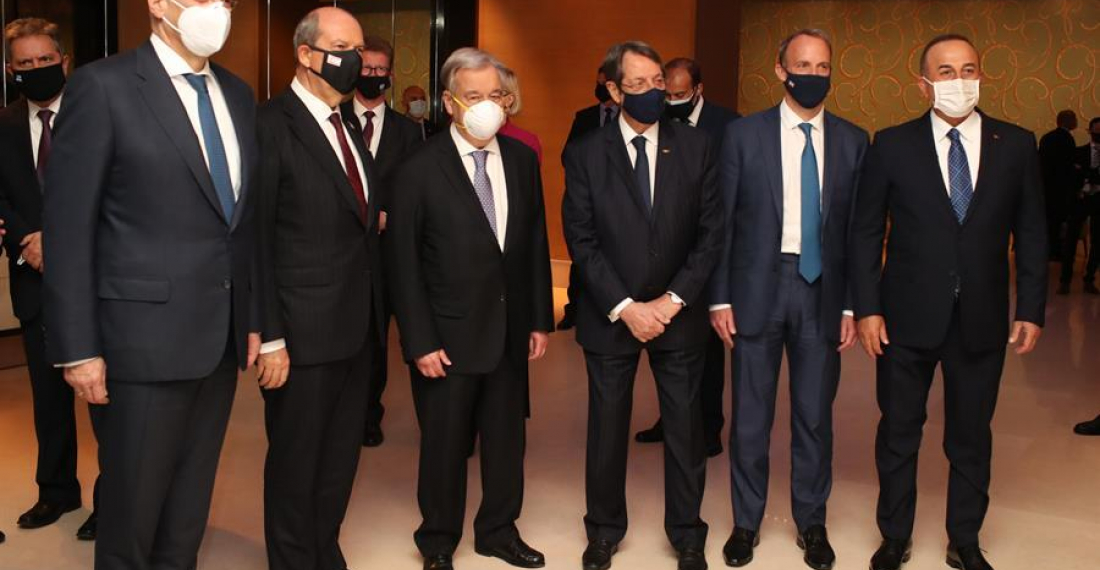An informal meeting on the future of Cyprus opens today in Geneva under the auspices of the United Nations.
UN Secretary-General Antonio Guterres on Tuesday held separate meetings with the leaders of the Turkish and Greek Cypriots ahead of the plenary session on Wednesday.
Alessandra Vellucci, UN Information Service (UNIS) spokeswoman in Geneva, said that “the informal 5+1 Meeting on Cyprus in Geneva” had begun with a bilateral meeting between Guterres and the leader of the Turkish Cypriots, Ersin Tatar, who is president of the self-declared Turkish Republic of North Cyprus.
Those talks were followed by a meeting between Guterres and the president of the Republic of Cyprus, Nicos Anastasiadis.
The UN chief hosted a reception for the heads of delegations later in the evening.
Turkish Foreign Minister Mevlüt Cavusoglu, Greek Foreign Minister Nikos Dendias, and UK Foreign Secretary Dominic Raab are leading the delegations of the three countries that are characterised as guarantor countries according to the 1960 agreement that led to the independence of Cyprus from the UK.
Ahead of the talks, Stephane Dujarric, spokesman for Guterres, had said: "The secretary-general is realistic. This is an issue that he knows well. He has participated in discussions before. So, he is realistic."
He said Guterres decided to call this "informal meeting" following consultations over the past several months.
"As we have repeatedly said, the purpose of this informal meeting will be to determine whether a common ground exists for the parties to negotiate a lasting solution to the Cyprus issue within a foreseeable horizon," said the UN spokesman.
Speaking on the 5+1 format, Dujarric said: "It is basically the leaders of the two communities, plus Greece, Turkey and the UK That format is really based on historical precedent."






